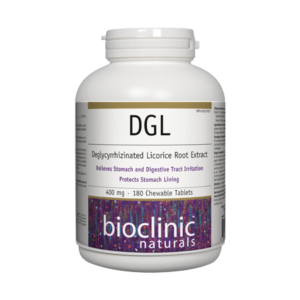Description
Benefits
- Magnesium citrate has been shown to have superior bioavailability to other forms of magnesium, increasing its clinical effectiveness
- Citrate-malate complexes increase mineral absorption, particularly among individuals with reduced gastric acid secretion
- Malic acid supplies an important substrate in the citric acid cycle, contributing to improved energy metabolism
- Conveniently dosed at 150 mg per capsule, allowing for easy therapeutic dosing
Feature Summary
As the second most abundant intracellular action and a cofactor for at least 300 metabolic reactions, magnesium is a critical regulator of numerous cellular functions, ion channels, signalling pathways, enzymes, and metabolic pathways including glycolysis, fatty acid oxidation and DNA synthesis. Substantial epidemiological evidence indicates that a low magnesium intake is quite common, and that it is associated with diverse pathological conditions, particularly metabolic and inflammatory disorders such as insulin resistance, obesity, diabetes and cardiovascular disease, but also to osteoporosis, cancer and hypertension.
Recent research has highlighted magnesium’s important role in glucose homeostasis, as supplementation improves insulin sensitivity and regulates beta-cell function, while deficiency exacerbates chronic inflammatory stress, contributing to obesity and the metabolic syndrome. Supplementation reduces serum glucose, increases HDL levels and improves insulin sensitivity, even among those with normal magnesium levels, and in both diabetic and non-diabetic populations. Magnesium also improves postprandial hyperlipidemia, and down-regulates genes related to metabolic and inflammatory pathways. In addition to improving magnesium bioavailability, citrate itself is a mitochondrial substrate and provides an alkaline load. It chelates dietary oxalates, reducing renal stone formation risk.
Medicinal Ingredients
| Each Vegetarian Capsule Contains: | |
| Magnesium (Citrate, Malate) | 150 mg |
| Sourced from 750 mg of magnesium complex yielding 150 mg elemental magnesium. |
Non-Medicinal Ingredients
Vegetarian capsule (carbohydrate gum, purified water), microcrystalline cellulose, stearic acid, vegetable grade magnesium stearate (lubricant).
Allergens:
Contains no artificial colours, preservatives, or sweeteners; no dairy, starch, sugar, wheat, gluten, yeast, soy, corn, egg, fish, shellfish, animal products, tree nuts, or GMOs. Suitable for vegetarians/vegans.
Recommended Use:
3 vegetarian capsules per day or as directed by a health care practitioner
Contraindications
Magnesium supplementation is contraindicated in individuals with impaired kidney function, as well as those with heart blocks, such as atrioventricular or bifascicular blocks. Some people may experience diarrhea. Keep out of reach of children.
Drug Interactions
Magnesium may influence the absorption and/or actions of a number of medications, including calcium channel blockers, bisphosphonates, diuretics, digoxin, warfarin and various antibiotics, though spacing their administration apart often minimizes any interaction. It has favourable effects on some medications that may require lower dosing including albuterol, insulin and other diabetes medications. Additionally, some medications significantly deplete magnesium levels, such as proton pump inhibitors and estrogens, suggesting benefit of combined use.
- Aydin H, Deyneli O, Yavuz D, et al. Short-term oral magnesium supplementation suppresses bone turnover in postmenopausal osteoporotic women. Biol Trace Elem Res. 2010 Feb;133(2):136-43.
- Chacko SA, Sul J, Song Y, Li X, et al. Magnesium supplementation, metabolic and inflammatory markers, and global genomic and proteomic profiling: a randomized, double-blind, controlled, crossover trial in overweight individuals. Am J Clin Nutr. 2011 Feb;93(2):463-73.
- Guerrero-Romero F, Tamez-Perez HE, et al. Oral magnesium supplementation improves insulin sensitivity in non-diabetic subjects with insulin resistance. A double-blind placebo-controlled randomized trial. Diabetes Metab. 2004 Jun;30(3):253-8.
- Guerrero-Romero F, Rodríguez-Morán M. Magnesium improves the beta-cell function to compensate variation of insulin sensitivity: double-blind, randomized clinical trial. Eur J Clin Invest. 2011 Apr;41(4):405-10. doi: 10.1111/j.1365-2362.2010.02422.x.
- Karp HJ, Ketola ME, Lamberg-Allardt CJ. Acute effects of calcium carbonate, calcium citrate and potassium citrate on markers of calcium and bone metabolism in young women. Br J Nutr. 2009 Nov;102(9):1341-7.
- Kishimoto Y, Tani M, Uto-Kondo H, et al. Effects of magnesium on postprandial serum lipid responses in healthy human subjects. Br J Nutr. 2010 Feb;103(4):469-72.
- Larsson SC, Orsini N, Wolk A. Dietary magnesium intake and risk of stroke: a meta-analysis of prospective studies. Am J Clin Nutr. 2012 Feb;95(2):362-6.
- Mooren FC, Krüger K, Völker K, et al. Oral magnesium supplementation reduces insulin resistance in non-diabetic subjects – a double-blind, placebo-controlled, randomized trial. Diabetes Obes Metab. 2011 Mar;13(3):281-4. doi: 10.1111/j.1463-1326.2010.01332.x.
- Nielsen FH. Magnesium, inflammation, and obesity in chronic disease. Nutr Rev. 2010 Jun;68(6):333-40.
- Romani AM. Cellular magnesium homeostasis. Arch Biochem Biophys. 2011 Aug 1;512(1):1-23.
- Song Y, He K, Levitan EB, et al. Effects of oral magnesium supplementation on glycaemic control in Type 2 diabetes: a meta-analysis of randomized double-blind controlled trials. Diabet Med. 2006 Oct;23(10):1050-6.
- Volpe SL. Magnesium, the metabolic syndrome, insulin resistance, and type 2 diabetes mellitus. Crit Rev Food Sci Nutr. 2008 Mar;48(3):293-300.
- Walker AF, Marakis G, Christie S, et al. Mg citrate found more bioavailable than other Mg preparations in a randomised, double-blind study. Magnes Res. 2003 Sep;16(3):183-91.
- Zerwekh JE, Odvina CV, Wuermser LA, et al. Reduction of renal stone risk by potassium-magnesium citrate during 5 weeks of bed rest. J Urol. 2007 Jun;177(6):2179-84.




